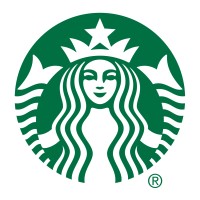
Starbucks
At Starbucks, we like to say that we are not in the coffee business serving people, but in the people business serving coffee. Here, our employees - who we call partners – are the heart of the Starbucks experience, and being a partner means aspiring to become part of something bigger: inspiring positive change in the world and growing in your career and in your community. It’s an opportunity to be your personal best. Starbucks is an equal opportunity employer of all qualified individuals, including minorities, veterans and individuals with disabilities. In everything we do, we are dedicated to our mission: To be the premier purveyor of the finest coffee in the world, inspiring and nurturing the human spirit — one person, one cup and one neighborhood at a time. Join us. Inspire with every cup. Explore opportunities, benefits and more at careers.starbucks.com






